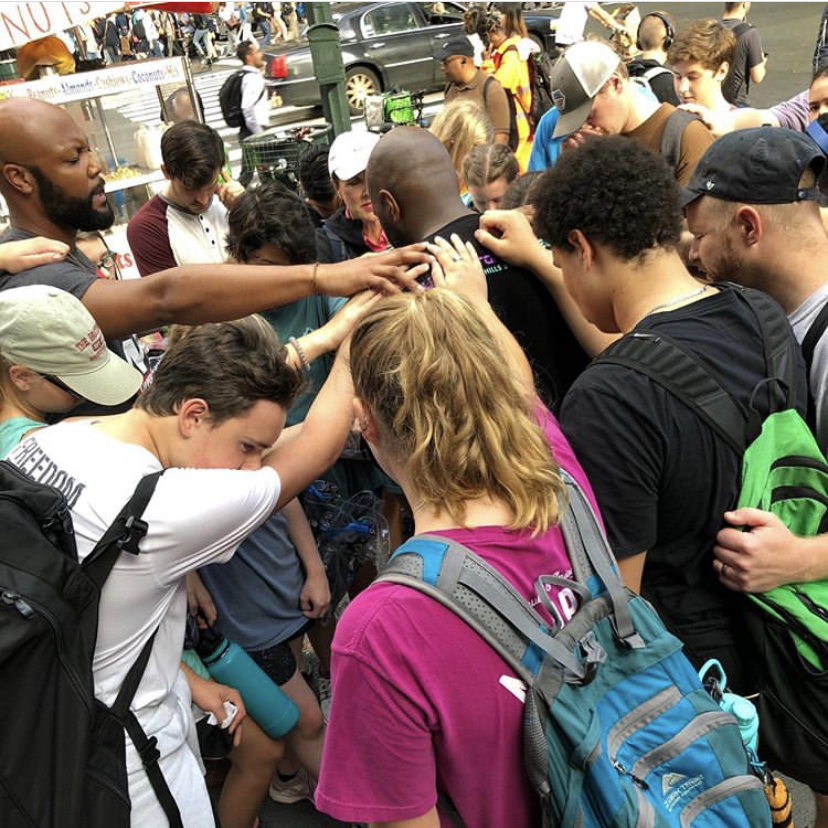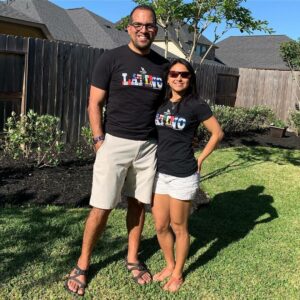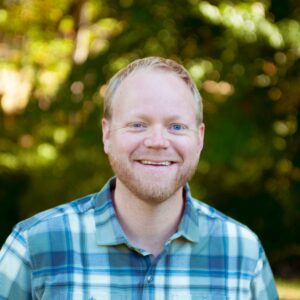 Today’s post is part 5 of our Spiritual Disciplines of a Leader series: Prayer. Previous posts in the series include Spiritual Disciplines of a Leader, Eliminating Hurry, Sabbath, and Solitude.
Today’s post is part 5 of our Spiritual Disciplines of a Leader series: Prayer. Previous posts in the series include Spiritual Disciplines of a Leader, Eliminating Hurry, Sabbath, and Solitude.
During the fall of an election year, I was invited to speak on prayer to a group of university students. On the same night, a presidential debate was taking place on their campus. As I approached my destination, I began to see the extraordinary safety measures being taken to protect the two candidates. Police officers, Secret Service agents, and other law-enforcement personnel were positioned just about everywhere.
Observing this impenetrable shield of protection, I was struck by the contrast between it and my unrestricted access to God. This Holy Other, this Lover of my soul, invites me to share in continual and unguarded dialogue with Him. Nonetheless, I struggle with prayer.
Some of my difficulty is that I’m often in a hurry, and God never hurries. I also want to be in control. I want God to move at the pace I set. I much prefer prayer to be like driving through the pickup lane at a fast-food restaurant. I want to place my order, drive around and be handed, in a convenient package, exactly what I ordered. (Ordered is an intriguing word to use when speaking with God, don’t you think?) If there are two things I don’t like, it’s having to wait and not getting what I order.
Prior to offering His friends a model prayer known today as The Lord’s Prayer, Jesus said:
“Here’s what I want you to do: Find a quiet, secluded place so you won’t be tempted to roleplay before God. Just be there as simply and honestly as you can manage. The focus will shift from you to God, and you will begin to sense His grace”(Matt. 6:6).
We’d be foolish to ignore Jesus’ straightforward wisdom. He eliminates any doubt about whether He wants us to pray by saying, “Here’s what I want you to do.” Then he focuses on where to pray. I don’t believe He’s saying there are places where prayer cannot occur. However, the setting can be an enormous help or hindrance. Cozy, quiet, removed, and comfortable are words that come to mind when I’m considering the ideal setting for getting away together.
Beyond the setting, it’s important to consider the form of prayer and the substance it reflects. Openness and vulnerability are crucial. So is availability, however, sometimes the simple act of “being there” is the greatest challenge. So much of my life is focused either on the past or the future. Yet, prayer requires us to be in the present moment.
Just as it’s easiest to learn a foreign language when we’re forced to speak it, we learn most about how to pray when we’re praying. And there are as many ways to pray as there are moments in a day. Every moment is a moment for some kind of praying and every form of prayer is acceptable. How we pray isn’t as important as that we pray. The saints don’t teach us a specific form for prayer; they simply teach us to pray.
The Scriptures chronicle an endless variety of forms and styles and approaches to prayer. Some prayed in sacred places and on secular streets. Some prayed with the language of angels while others stuttered and stammered. Walking, wobbling, or wallowing; standing, kneeling, or dancing they offered their prayers. Speaking their own words, using other’s words, or without words, they prayed. Raising their hands, clenching their fists, or clasping their hands in humility, they prayed. With full or empty stomachs, with full or empty hearts, they talked with God.
Perhaps the most important prayer we will ever pray is: “God, give me the desire to pray.” On other days it might be: “God, give me the desire for the desire to pray.”
Points to Ponder
- What forms of prayer are most natural and meaningful to you? Which ones seem to rob you of motivation?
- How open and honest are you with God? Do you find it difficult to be yourself God? Do you find yourself trying to hide things from God?
- How would you like to pray? Do you find it easier to maintain a habit if it’s something you find meaningful and enjoy?
—
Written by Fil Anderson.

Fil Anderson is a spiritual director, conference speaker, writer and retreat leader. He served on the Young Life staff for 25 years.
Fil is the author of Running on Empty: Contemplative Spirituality for Overachievers and Breaking the Rules: Trading Performance for Intimacy with God.
His brand-new book “Blindspots: What You Don’t See Can Hurt You” comes out at the end of July, but you can pre-order it here.




